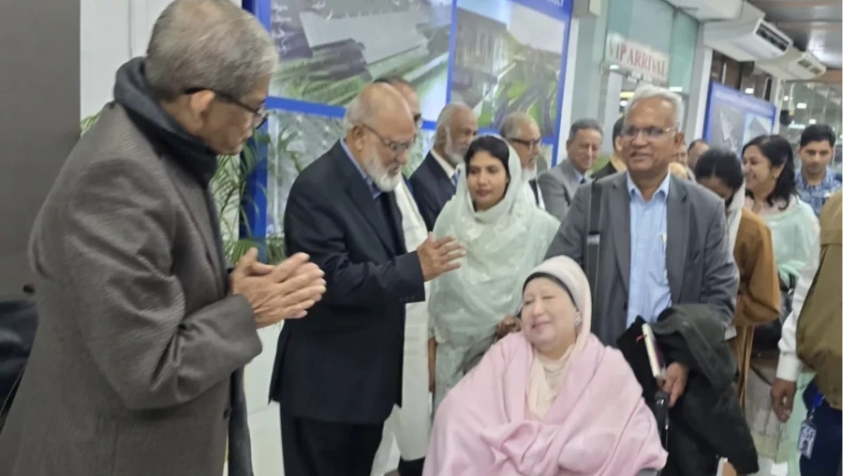
Khaleda Zia Departs for London Amid Bangladesh’s Political Uncertainty
In a major political and humanitarian development, former Bangladeshi Prime Minister Khaleda Zia departed Dhaka late Tuesday for London to undergo urgent medical treatment. The three-time premier and leader of the Bangladesh Nationalist Party (BNP) suffers from severe health conditions, including liver cirrhosis, cardiac disease, and kidney complications, according to her physician.
Zia, 79, left on an air ambulance arranged by Qatar’s Emir Sheikh Tamim bin Hamad Al Thani. Her motorcade’s journey to Hazrat Shahjalal International Airport, spanning a 10-kilometer stretch, took nearly three hours due to thousands of supporters lining the streets to bid her farewell. Television stations broadcasted the emotional departure live, capturing the scenes of traffic chaos and public solidarity.
This development comes amid a politically uncertain period in Bangladesh. The nation is under interim governance led by Nobel laureate Muhammad Yunus, following the ousting of Khaleda Zia’s long-time rival, Sheikh Hasina, in a student-led uprising in August. Elections are expected by late 2025 or early 2026.
Zia’s legal battles have been central to the country’s political discourse. She was sentenced to 17 years in jail on corruption charges during Hasina’s administration, which her supporters claim were politically motivated. Recently, under Yunus’s leadership, she was acquitted of one case, while another remains under appeal. Despite being freed on bail in 2020, Zia was previously denied permission to seek treatment abroad.
Zia’s London-bound journey also highlights Bangladesh’s dynastic political dynamics. Her eldest son, Tarique Rahman, acting chairman of the BNP, has been in exile in London since 2007 and is poised to lead the party into upcoming elections.
As Zia departs, Bangladesh continues to navigate a challenging political landscape, with its two most influential families—Zia’s and Hasina’s—remaining central to the nation’s political narrative.





